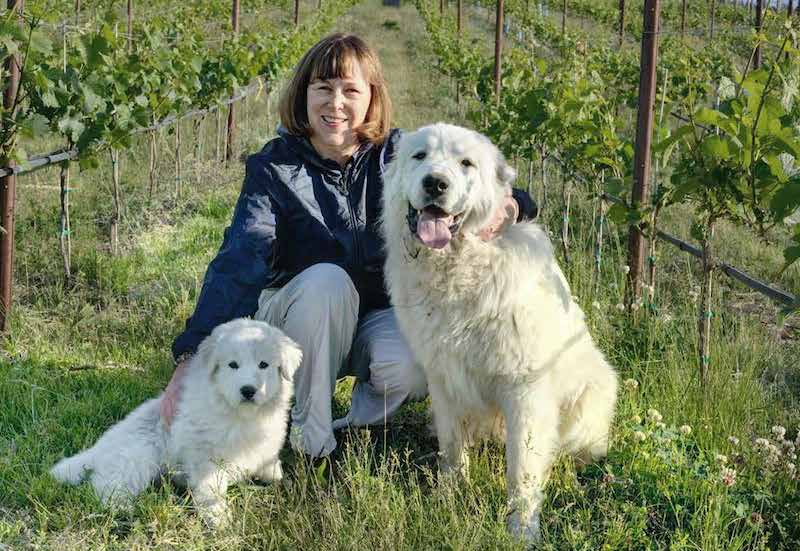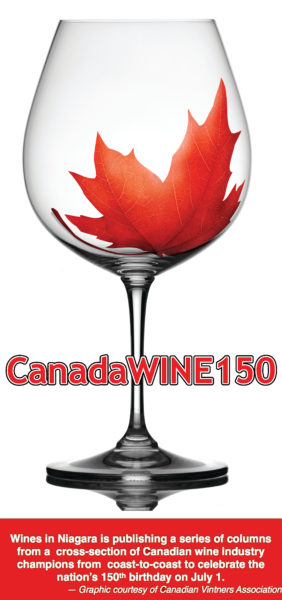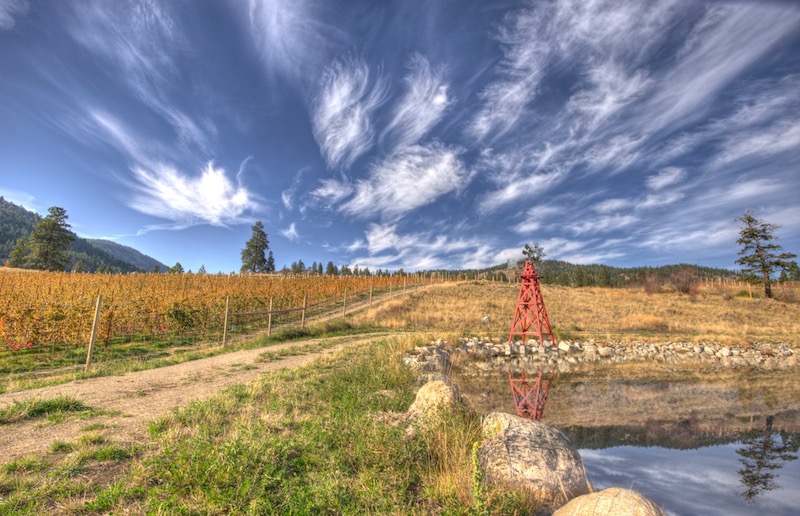
By Christine Coletta
SUMMERLAND, B.C. — Over the 30 years that I have been in or around the wine industry I have absorbed quite a lot of information, but the more I know, the more I know I need to learn.
Pedro Parra said to me recently that our vineyard project at Garnet Valley Ranch will only begin to show its true potential to the next generation. That made me a little sad – I really hate to be left out of the action – but at the same time, it made me realize that I better get on my bike and do my part.
ABOUT THIS SERIES, go here
 Perhaps I got into this game too late to see it to the end. But at my age I have a lot of time left to set the next generation up to take everything to the next level. And I don’t just mean our own land, but our industry as a whole: Okanagan — British Columbia – Canada.
Perhaps I got into this game too late to see it to the end. But at my age I have a lot of time left to set the next generation up to take everything to the next level. And I don’t just mean our own land, but our industry as a whole: Okanagan — British Columbia – Canada.
For me it is about four key aspects; terroir, best farming practices, minimal intervention winemaking, and marketing.
A ‘terroir’ is a distinct piece of land that has a consistently recognizable signature from year to year. The impact of weather may vary from vintage to vintage but the terroir always maintains its essence: like a piece of music that can be played on different instruments or interpreted by different musicians.
The song that my vineyard sings cannot be replicated anywhere else. I now know that it will take decades to learn what our land is capable of expressing as a vineyard-designated wine. And I have learned not to rush this process, even though all of us who are working on this project want to see the full potential of what we have.
It’s like having a child and envisioning it as an adult, but being patient and encouraging and enjoying every moment of its youth and journey to maturity.
If I have learned anything over the past 30 years it is to respect farmers. Being city born and raised, my first farm experience happened when I was 20 and I arrived at a farm on the Green Mountain Road near Penticton.
Bang, one day of haying and the city was gone and I had my home for the next three years. I loved the space, the quiet, all of the various animals and the vivid contrast of the seasons that can all merge into one long rainy blur if you come from Vancouver.
Every season brought a new cycle in your life and work routine. But I had something to prove so headed back to the city to make my mark. Ever since then, I have always wanted a piece of land to call my own, to take care of, to raise animals on; a place to shape and to make fruitful.
I have the greatest respect for farmers. I also have a great respect for land, and have learned that we have a duty to care for land that is “temporarily” ours and to leave it in better shape than we found it. That is my mission.

From healthy, precision-farmed grapes it is then our duty to produce the purest expression of that vineyard song that we can. Don’t add anything foreign, don’t manipulate it, don’t be careless so that you have to fix your mistakes. Just let wine be.
It’s popular to say you are doing this, but another thing altogether to have the right environment (healthy organically grown grapes, neutral fermentation and aging vessels, a pure clean cellar, gentle processing equipment and most importantly, very experienced and capable winemakers). All of this is required to safely allow wine to more or less make itself. Call it what you want – natural, minimal intervention, the goal is to make wine that is reflective of the vineyard. End of story.
It may seem crass to list “marketing” as an essential element, but we all need to learn how to convey our own unique story in order for the trade and public to understand what we are trying to achieve — our relevance, the value of our goals, and the importance of our region.
So articulate your story as well as you can. Do so in a way that doesn’t cut others down, but inspires them to follow along and try out new things. Communicate beyond the small pond that is our home market and share with the world what we proudly know about our special winegrowing regions. And because we are so small, marginal, and new, this messaging will have to be done relentlessly.
So, there is a lot of work to be done during the time I have left to contribute. All my efforts will go into leaving my “next generation” with the required tools and a firm vision so they can carry on with the work that my husband Steve and I started.
I’m going to immensely enjoy playing my part for the next 15 to 20 years and hope we all land where I think we will.
About Christine Coletta
Christine Coletta and her husband Steve Lornie own Okanagan Crush Pad, a family-run custom crush winery located in Summerland, B.C., that is home to their Haywire and Narrative wines. Christine started her working life in the restaurant industry in Vancouver where she was first introduced to wine. Years of volunteering with the wine industry sealed her love — not only of wine, but the people in Vancouver’s wine trade. In 1990 she was offered a job she could not refuse: to revitalize British Columbia’s tiny floundering wine industry. She went on to spend nine years as the executive director of the B.C. Wine Institute and Wines of Canada where she was instrumental in establishing the region’s appellation system and growing market share. She then spent fourteen years consulting in the field of marketing, branding and communications and had the privilege of working on many global and domestic wine brands including Wines of Australia, Wines of Chile, and the Washington Wine Commission. A solitary moment in a new vineyard in Chile’s Leyda Valley convinced Christine that she needed her own place. Since 2005 she has been working to establish her vineyards and winery. Christine is widely acknowledged as one of the industry’s most innovative marketing experts and has been recognized with several awards for her work. She splits her time between Vancouver and Summerland.






Comment here